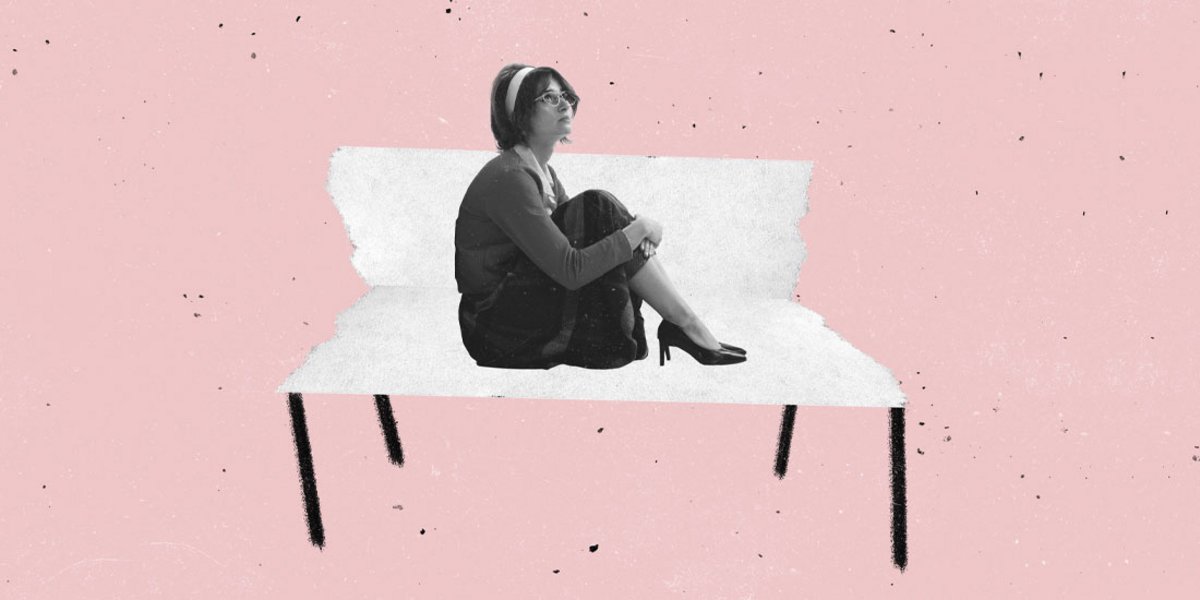Today we are going to look at a battle within, and not one of the smallest battles either! This is the battle we experience when we consider going for therapy. Often, people feel ashamed that they have even have to consider this. But don’t look at this as being a weakness on your part, instead, be proud that you have courage and strength of will to think about it! It’s actually a wonderful thing to put your own ego aside, so that you can commit to listening and understanding your behaviour in a particular situation. After all, if therapy is right for you, isn't it worth considering? Who cares what anyone else has to say? It is worth battling to overcome traditional beliefs! Because at the end of the day, we consult all the specialists we need to treat our physical problems, so why not do the same with regards to our psychological problems too?
A systematic resentment to feeling shame?
As mentioned above, we can often feel a sense of shame when we ask ourselves the question, “should I go to see a psychologist?” Is this just a breakdown of self-confidence? A fear of how others will see or judge us?
A certain kind of fear can then take over. Let me explain! After many long hours of giving interviews to write this article, I got many testimonies from various different generations. My question was: “Do you want to go see a psychologist?”
Gary: "There’s no point, because if I talked about what happened to me, no one would ever believe me!" Jane: “They won't take me seriously if I talk about my petty issues. But then, if I talk about certain traumas, I am afraid that the person listening to me might take the side of the aggressor.” Jules: "I'm going to be asked questions that are too raw and direct and to be faced with my past. I don't want anyone to pity me either." Tatiana: "I don't want anyone to change the way they look at me, just because I have confided in them".
Let's abolish all those kinds of prejudices! The causes of feeling shame like this can come from internal and/or external factors. For example, following being put under enormous pressure to succeed, or established by a stressful family environment.
In fact, everyone goes through periods of depression or stress. However, when those feelings take over, it can be a good idea to ask those around you for help. Letting go of some accumulated emotions and expressing them out loud can be of great benefit. Of course then, talking to someone who has been trained to “treat” anxiety and depression can be even more helpful! Even the individuals who seem the most balanced from your point of view, sometimes need a little help! And it's nothing to be ashamed about... quite the opposite: it is a strength!
Negative preconceptions…? A rather conflicting reality!
Many people have a quick look into therapies… And I totally understand that… It goes without saying that there are increasing amounts of charlatans rooted in our society. However, an immense diversity of therapies exists, and every therapy can be adapted for each particular case. But what is the first point of pre-therapy consideration to reflect on? Well, it’s to recognize that you have a problem and/or to consult with someone, having a particular reason in mind.
Therapy requires a personal investment! No one can decide to go for a consultation for you. This decision is up to you. It is more important to consult with a particular reason in mind, a reason which allows you to give yourself the impetus you need to follow the therapy. In reality, this first pattern of thinking makes it possible to unlock and work on the origin of the disorder.
A variety of scenarios
No single universal solution exists to “treat” every psychological problem! A particular therapy might work for one issue, but not necessarily for another. Here is a testimony corroborating this:
Vicky’s Testimonial “One fine day, I felt the desire and the need to see a specialist. Following the advice of my general practitioner, my first choice was a psychiatrist. Unfortunately, this experience was rather brief. Let me explain: my first appointment went pretty well. The specialist was attentive and seemed to understand my situation. So, we agreed on a second appointment which, this time, gave me nothing except the prescription of a drug that causes strong daily drowsiness and addiction. One tablet was enough for me to understand that this was not a suitable solution for me, despite the advice of the psychiatrist. I never saw him again. My second choice was therefore a psychologist. Again, this was a brief experience! My first date was very short, 30 minutes during which I felt like I was confiding to a wall. Not a single word from him, a "hum, hum" once in a while. At the end of the appointment, the psychologist said to me: “Hum, this all seems very complicated to me, have you thought of consulting a psychiatrist? " So, are you are wondering what type of therapy I was able to choose in the end? The answer is self-help through writing. I write absolutely everything. What worries me, what makes me happy, what makes me angry, the problems I encounter on a daily basis, my discoveries... The goal is to be able to reread your writings with 1 or 2 months of hindsight, in order to be able to make a different judgment on your emotions and your feelings in life, be they positive or negative. I have been following this self-therapy for more than 4 years, I have lost count of the pages I have written! But one thing is certain, it was the right choice for me.”
A pre-agreed duration?
How long a therapy lasts, depends entirely on the circumstances and the evolution of the patient. Often, a reassessment of progress after some time in therapy is a good thing to do. This can make it possible to adapt the therapy even more, to give the best support possible for the patient. Indeed, if one particular therapy no longer suits you, it is possible to move on to another type of therapy. Some people see the same specialist for years, while others make a change after a while. It all depends on your progress and your personal needs.
When to consider therapy
Not necessarily when you are at the lowest! And besides… Are we really obliged to dwell on matters for an inordinately long period of time and to accumulate anger, resentments and more? … Not necessarily, because it can actually damage you more deeply! And then you could need even longer in therapy! So, the sooner the better!
Who to consult with?
Therapy is often like a first date! It doesn't always work with the first comer. It is therefore important to find the right person for you. But that's no fun.
Psychoanalyst, psychotherapist, psychologist, psychiatrist? The approaches, therapists and methods are diverse and varied. So, let's stop choosing a therapist based on their qualifications. Simply focus on the person in front of you: are your exchanges sincere? Are you comfortable with him or her? Because, after all... You are going to spend a long time with this person...
That's all for now from me, my friends… Ready for the therapy of your choosing now?









